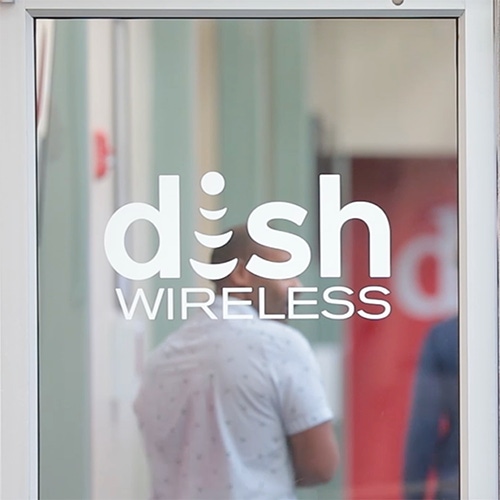
Dish Network's lawyers had a rough day on Friday, according to the financial analysts at New Street Research.
"In this case, it appeared that the judges favored the FCC arguments," they wrote in a note to investors issued shortly after Dish's lawyers appeared in front of the US Court of Appeals for the District of Columbia Circuit.
At issue are $515 million in fines and 197 AWS-3 spectrum licenses worth around $3.3 billion. Dish argues that it should not have to pay the fine, and that it should be able to get those spectrum licenses. The FCC disagrees. And the debate between the two has been bouncing across various courtrooms for the past eight years.
In 2022, however, the issue may be settled once and for all. And, according to the New Street Research analysts, it looks like Dish may be the loser.
"Oral arguments are not always good predictors of outcomes, as not all the judges ask questions and sometimes judges ask questions for the sake of testing their own views, rather than to reveal their views. Still, the oral argument is the best data we have for how the judges are thinking," they wrote of the legal debate between FCC lawyers and Dish lawyers Friday in the appeals court.
"We think the judges could rule either way, but based on the arguments we think the judges are leaning toward, and have an easier path for, ruling for the FCC," the analysts concluded. They said the DC judges may reach a decision in the matter in the next few months, and that further appeals are unlikely to be successful.
From AWS-2 to 12GHz
The long-running legal battle between the FCC and Dish centers on two bidding entities called Northstar Wireless and SNR Wireless that bought $13.3 billion worth of AWS-3 spectrum in the FCC's auction that ended in 2015. SNR and Northstar initially qualified as "designated entities," or DEs, which made them eligible for a 25% discount intended for small businesses.
After the auction ended, the FCC ruled that the two DEs should not receive that discount because they were financially too close to Dish. As a result of the FCC's decision, Dish paid a $515 million fine and relinquished AWS-3 spectrum licenses worth around $3.3 billion. But the company has been working to claw back that money and spectrum across years of legal appeals.
Dish's broader 5G ambitions won't be impeded if it ultimately loses its legal battle against the FCC. The company's current 5G network buildout plans stretch across a wide range of other spectrum bands and licenses that are not hanging under a legal cloud.
Figure 2: 
The Dish Wireless headquarters building in Littleton, Colo.
(Source: Dish)
However, a victory by the FCC against Dish over AWS-3 spectrum may ultimately benefit AT&T and Verizon. That's because the two companies have essentially been borrowing access to some of the 197 AWS-3 licenses at issue in the legal battle between Dish and the FCC. The companies gained temporary access to those licenses due to the FCC's efforts to provide additional network capacity to wireless network operators at the start of the COVID-19 pandemic. If the FCC emerges victorious on the AWS-3 topic, it would likely re-auction those licenses – paving the way for AT&T, Verizon and others to win them.
It is also worth noting that Dish has been pursuing a number of other spectrum opportunities beyond the disputed AWS-3 licenses. Prime among those opportunities is the 12GHz band, where Dish holds a substantial amount of spectrum for its satellite TV operations. The company has been urging the FCC to write new rules that would allow 5G operations in the 12GHz band alongside satellite operations.
In a filing this week with the FCC, Dish wrote that the 12GHz band should be "unshackled from the outdated restrictions" so that it can be used for 5G. Doing so, the company said, would help "advance and cement the 5G revolution and United States 5G leadership."
Separately, Dish is expected to be a big winner in the FCC's recent auction of spectrum between 3.45GHz and 3.55GHz. The results of that auction are expected to be released in days.
Related posts:
— Mike Dano, Editorial Director, 5G & Mobile Strategies, Light Reading | @mikeddano
About the Author(s)
You May Also Like












